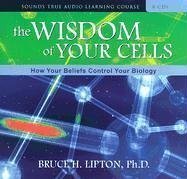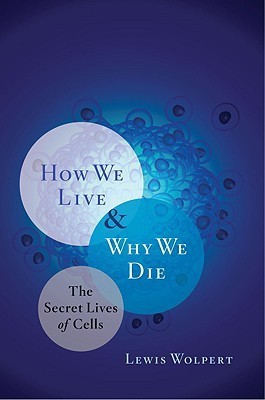
The Wisdom of Your Cells: How Your Beliefs Control Your Biology
Book Description
Unlock the hidden power of your mind and discover how your beliefs shape your very biology. In "The Wisdom of Your Cells," Bruce H. Lipton unveils the thrilling connection between consciousness and cellular function, revealing that thoughts can redefine health and well-being. With groundbreaking insights from biology and psychology, this transformative exploration challenges everything you thought you knew about the mind-body connection. Prepare to question the limits of your potential and confront the extraordinary capabilities lying dormant within you. What if the key to your health and happiness has been inside you all along?
Quick Book Summary
"The Wisdom of Your Cells" by Bruce H. Lipton explores the profound influence of beliefs and perceptions on biology and health at the cellular level. Drawing from cellular biology, epigenetics, and psychology, Lipton argues that consciousness and thought processes can directly shape cellular behavior. He demonstrates that genes do not rigidly determine destiny; rather, the environment, including the mental environment created by beliefs, is a powerful regulator of genetic activity. The book emphasizes the transformative potential of changing beliefs to foster well-being and healing, challenging traditional notions about the separation of mind and body. Lipton provides compelling evidence and anecdotes to support the idea that individuals have the power to influence their physiology and health outcomes through the conscious direction of their thoughts and beliefs.
Summary of Key Ideas
Table of Contents
Cells as Intelligent Systems
Lipton begins by examining how cells function as intelligent, self-regulating entities. He explains that each cell responds to its environment, making decisions that support the life of the organism. Cells communicate with each other and adapt to changes, much like individuals in a community. This cellular intelligence, Lipton argues, is the foundation for understanding how our beliefs influence our health at the biological level. By recognizing the wisdom inherent in cellular mechanisms, he sets the stage for a new perspective on the relationship between mind and body.
The Science of Epigenetics and Belief
A central concept explored is epigenetics—the study of how environmental factors influence gene expression. Lipton reveals that genes are not fixed blueprints; rather, they interact dynamically with the environment. He asserts that thoughts, beliefs, and emotions become part of this environment, directly affecting cellular function. When a person experiences stress, joy, or fear, corresponding chemical signals instruct cells in ways that can either promote wellness or contribute to disease. This challenges the traditional, deterministic view of genetics and opens up new paths for personal empowerment.
The Mind-Body Connection
The connection between mind and body is further detailed through examples and scientific studies that showcase the measurable effects of beliefs on health. Lipton discusses phenomena such as the placebo effect as real demonstrations of the power of thought over biology. He shows that when individuals believe they are healing or becoming healthier, their bodies often respond in kind. Conversely, negative and limiting beliefs can trigger harmful physiological responses, leading to chronic stress or illness. This insight lays the groundwork for using the mind as a tool for healing.
Changing Beliefs to Transform Health
Lipton highlights practical strategies for changing limiting beliefs and reprogramming the subconscious mind. He encourages techniques like positive affirmations, visualization, and mindfulness practices—all aimed at reshaping the mental environment that influences gene expression. By adopting empowering beliefs and reducing negative self-talk, individuals can shift their biology toward greater health and resilience. He shares stories of people who have overcome serious health challenges by transforming their beliefs, emphasizing personal agency in wellness.
Consciousness as a Key to Healing
Concluding, Lipton situates consciousness at the heart of biological transformation. He suggests that awareness and intentional thought represent untapped resources for human potential. This perspective not only bridges the gap between science and spirituality but also invites individuals to take responsibility for their well-being. By looking inward and engaging consciously with our beliefs, we can unlock the full healing potential of our bodies, leading to profound and lasting changes in health and quality of life.
Download This Summary
Get a free PDF of this summary instantly — no email required.





